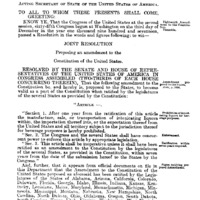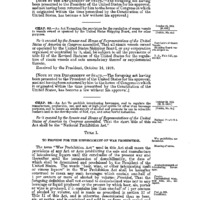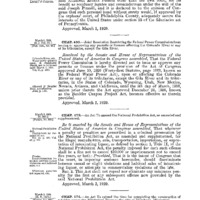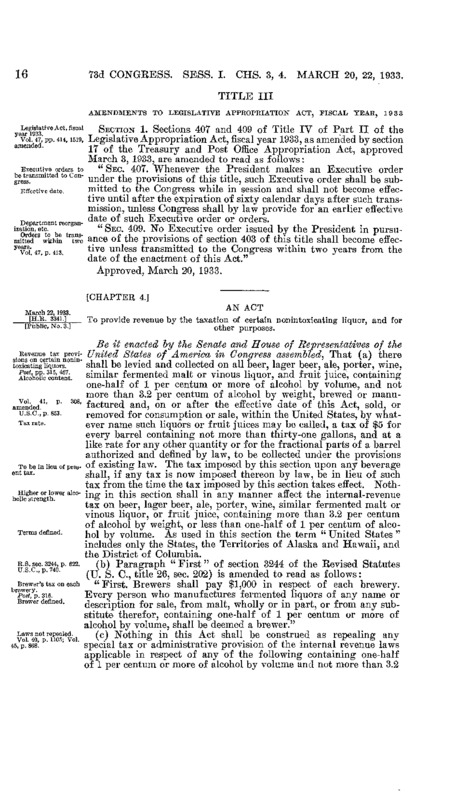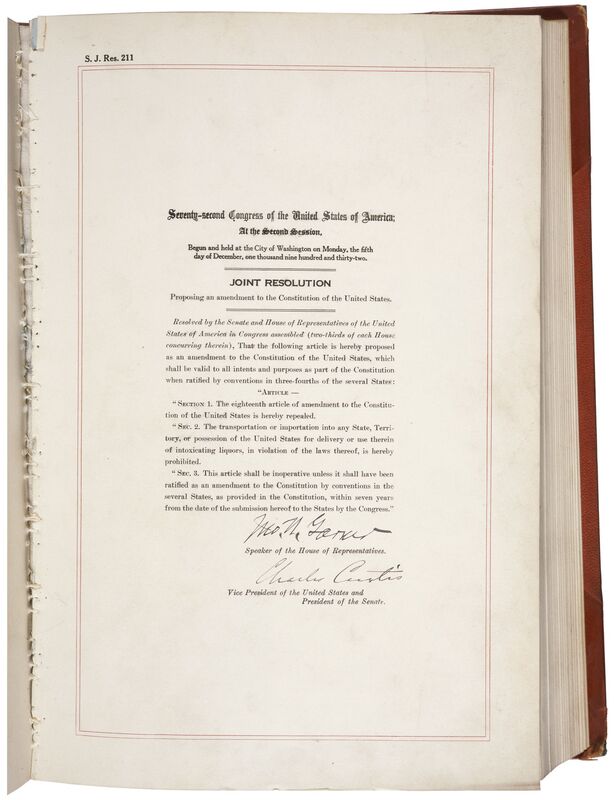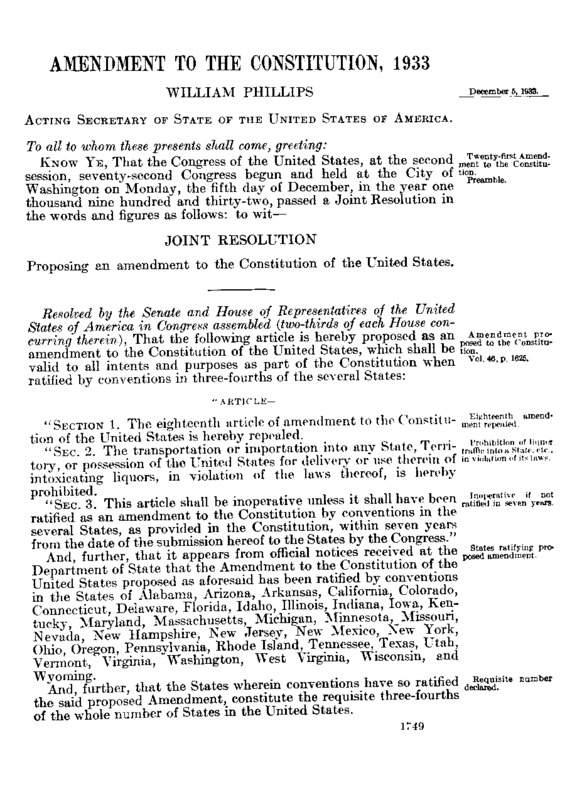Contents
- Constitution Day: Prohibition
- Amendments & Statutes
Amendments & Statutes
National Prohibition Laws
The resolution for the 18th Amendment was submitted to the states on December 18, 1917, proposed amending the U.S. Constitution to prohibit the “manufacture, sale, or transportation of intoxicating liquors.” The amendment was ratified on January 16, 1919.
The amendment hadn't defined "intoxicating liquors," alcohol-related criminal activity, or what, if any, exceptions would be made to prohibition. These specifics were left to Congress, which passed the National Prohibition Act, often called the Volstead Act. President Woodrow Wilson vetoed the bill, but it was passed again and became law on October 28, 1919, only two months before Prohibition took effect.
The Volstead Act set a strict limit on alcohol content of .5 percent; criminalized the manufacture and sale (but not the consumption) of alcoholic beverages; and allowed for home manufacture and alcohol for medicinal and religious use. It also set stiff penalties for violations. A first conviction could result in a fine up to $1,000 and imprisonment up to six months. Property used in breaking the law could be seized.
The Increased Penalties Act, or the Jones Act, was a bill that acted primarily as the punishment provision of the Volstead Law. Its purpose, was to stiffen the penalties against those convicted of violating Prohibition for commercial purposes. In particular, the Act increased the penalties for importing, transporting, and exporting liquor, to match the existing penalties for manufacturing and selling it.
Repeal Laws
An Act to provide revenue by the taxation of certain nonintoxicating liquor, and for other purposes, more famously known as the Cullen-Harrison Act, was proposed after President Roosevelt called for Congress to legalize low proof alcoholic beverages. The Act became effective on April 7, 1933.
The Cullen-Harrison Act permitted states to legalize alcoholic beverages with an alcohol content of 3.2% by weight. States could also pass similar legislation effective within their borders. Twenty-one states and the District of Columbia did so by April 7. The Cullen-Harrison Act became null and void once the 21st Amendment was ratified.
This joint resolution proposed the 21st Amendment was passed on February 21, 1933, and sent to the states for ratification that same day. Ratified on December 5, 1933, the 21st Amendment is unique for two reasons. It is the only amendment to repeal another amendment (the 18th, which legalized Prohibition). Secondly, it was the only amendment to be ratified by state conventions assembled specifically to vote on it, rather than by state legislatures.
Source: National Archives DocsTeach collction on the 18th Amendment
